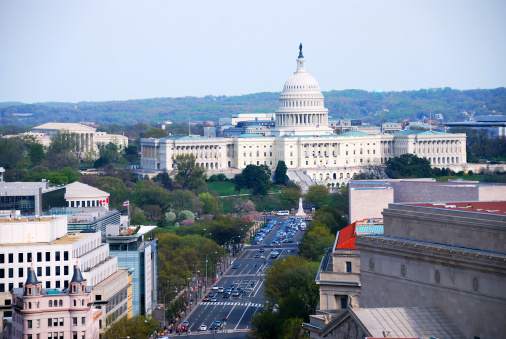The Congressional Budget Office (CBO) issued the first good news about the federal budget deficit since the 2008 recession and the huge stimulus program meant to pull the economy out of its dive. In another sign that the economy has turned upward, individual tax receipts were a large factor in the improvement.
On the other hand, higher tax rates may have been the cause. Ironically, experts believe that these taxes could hurt the consumer later in the year, which would undermine improvements in the size of the deficit.
According to the CBO’s monthly budget review:
The federal government ran a budget deficit of $489 billion in the first seven months of fiscal year 2013 (that is, from October 2012 through April 2013), according to CBO’s estimates. That amount is $231 billion less than the shortfall recorded during the same period last year, primarily because revenue collections have been much greater than they were at this point in 2012. In contrast, federal spending so far this year has been slightly lower than what it was last year at this time.
And:
Individual income and social insurance (payroll) taxes together increased by $184 billion (or 16 percent).
Taxes withheld from workers’ paychecks rose by $99 billion (or 9 percent), mainly because of higher wages and salaries, the expiration of the payroll tax cut in January 2013, and increases (beginning in January) in tax rates on income above certain thresholds.Nonwithheld receipts rose by $80 billion (or 30 percent), primarily because of higher payments made during the tax-filing season (February through April). Those payments—largely representing final payments for the 2012 tax year—increased by $66 billion (or 36 percent). Income tax refunds declined by $6 billion, further boosting receipts. The large increase in payments accompanying people’s income tax returns probably reflects the fact that higher-income taxpayers, anticipating changes in tax law, realized more income in 2012.
Those final payments submitted with 2012 tax returns (net of refunds) were substantially greater than the amounts CBO projected in its February 2013 report The Budget and Economic Outlook: Fiscal Years 2013 to 2023. The agency will issue updated budget projections for the 2013–2023 period next week.
Net corporate income taxes were higher by $24 billion (or 22 percent), probably reflecting growth in taxable profits in both calendar years 2012 and 2013.
Are You Still Paying With a Debit Card?
The average American spends $17,274 on debit cards a year, and it’s a HUGE mistake. First, debit cards don’t have the same fraud protections as credit cards. Once your money is gone, it’s gone. But more importantly you can actually get something back from this spending every time you swipe.
Issuers are handing out wild bonuses right now. With some you can earn up to 5% back on every purchase. That’s like getting a 5% discount on everything you buy!
Our top pick is kind of hard to imagine. Not only does it pay up to 5% back, it also includes a $200 cash back reward in the first six months, a 0% intro APR, and…. $0 annual fee. It’s quite literally free money for any one that uses a card regularly. Click here to learn more!
Flywheel Publishing has partnered with CardRatings to provide coverage of credit card products. Flywheel Publishing and CardRatings may receive a commission from card issuers.
Thank you for reading! Have some feedback for us?
Contact the 24/7 Wall St. editorial team.
